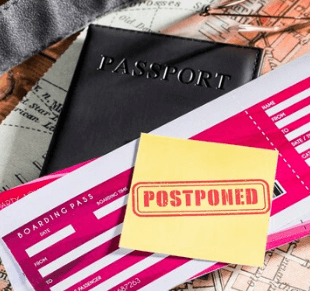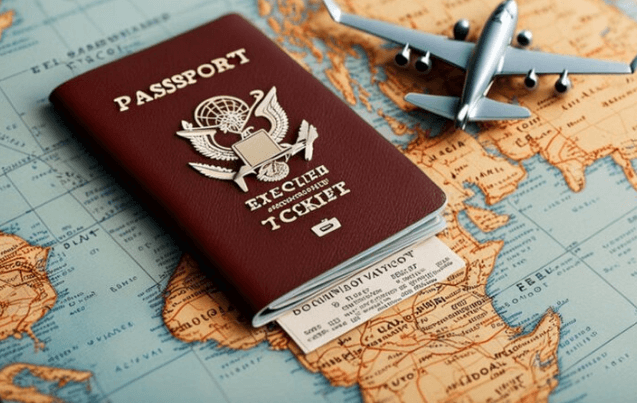In the ever-evolving landscape of global travel and migration, the issue of visa refusals emerges as a pivotal challenge. While the dream of exploring new horizons, pursuing career opportunities, or reuniting with loved ones crosses international borders, the harsh reality of visa denials often halts these aspirations abruptly.
Visa refusals, a more common occurrence than many anticipate, are not just administrative hurdles; they carry significant emotional and practical implications for individuals worldwide.
The reasons for visa refusals are as diverse as the applicants themselves. From documentation errors to insufficient evidence of financial stability, each refusal has its unique context and backstory. However, the impact is universally profound, affecting personal plans, career trajectories, and in some cases, entire life courses. The process of applying for a visa, often perceived as a gateway to new opportunities, can turn into a complex maze of bureaucratic challenges, leaving applicants in a state of uncertainty and disappointment.
To illustrate the real-life impact of a visa refusal, consider the case of Maria, a promising student from Brazil. Maria, having excelled in her studies, received a coveted acceptance letter from a prestigious university in the United States. Filled with excitement and aspirations for her academic future, she began the visa application process, viewing it as merely a formality before embarking on her educational journey. However, contrary to her expectations, her application was refused on the grounds of insufficient ties to her home country.
The refusal hit Maria like a wave of cold water. Dreams of walking through the hallowed halls of her chosen university were replaced with a stark reality – she wouldn’t be going. This refusal didn’t just mean a delayed trip or a change in plans; it signified a derailment of her academic and professional goals. The painstaking process of reapplying seemed daunting, overshadowed by the fear of another refusal. Maria’s story mirrors the experiences of countless individuals who find their aspirations on hold, their plans disrupted, and their potential unfulfilled due to a visa refusal.
Maria’s experience underscores a critical aspect of visa refusals – they are more than just bureaucratic decisions. They represent a significant emotional and psychological toll on applicants. The uncertainty and lack of transparency in the decision-making process often leave applicants feeling helpless and frustrated. Moreover, the stigma associated with a refusal can lead to a sense of personal failure, despite the often arbitrary nature of these decisions.
The phenomenon of visa refusals, thus, warrants a deeper understanding and a more nuanced discussion. It’s not just about the numbers or the legalities; it’s about the human stories behind each refusal. As we delve into this topic, we aim to unravel the complexities of visa refusals, offering insights into their common causes, the emotional impact they carry, and the ways to navigate and potentially overcome these challenges. Through this exploration, we seek to provide a beacon of hope and guidance for those like Maria, who find themselves at a crossroads, facing the daunting task of overcoming a visa refusal.
Understanding Visa Refusals
Visa refusals, a term that often brings a wave of confusion and disappointment, are government decisions to deny an individual’s application to enter a country for various reasons. This denial is not a mere administrative action; it’s a complex interplay of legal, financial, and security considerations, deeply rooted in each country’s immigration policy. Understanding the common causes of visa refusals is crucial for prospective applicants to navigate this often daunting process.
One of the most frequent causes of visa refusals is documentation errors or omissions. The visa application process requires a meticulous level of detail, and even minor mistakes or missing documents can lead to a refusal. This could range from incorrectly filled forms to insufficient proof of financial means. Such errors, though often unintentional, signal to immigration authorities a lack of preparation or seriousness, thereby impacting the decision.
Financial or employment instability is another critical factor. Embassies and consulates scrutinize an applicant’s financial background to ensure they have adequate funds to support themselves during their stay and are not at risk of becoming a public charge. Similarly, a stable employment history can indicate the applicant’s likelihood to return to their home country, which is a significant consideration in the decision-making process.
Security concerns and past legal issues are also paramount in visa decision-making. Applicants with a history of criminal activity, or those perceived as a security threat, face high chances of refusal. This criterion underscores the primary concern of countries to maintain their internal safety and security standards.
Insufficient ties to the home country often result in visa refusals. Authorities look for evidence that the applicant has strong reasons to return home, such as family, employment, or property. Lack of such ties raises suspicions about the applicant’s intentions, especially in cases where illegal immigration risks are high.
Beyond the legalities, the psychological impact of visa refusals is profound and multifaceted. The emotional toll can range from disappointment and frustration to severe stress and depression, especially in cases where the stakes are high, such as family reunification or essential business travel. The uncertainty and lack of control in the process can exacerbate these feelings, leading to a sense of helplessness and despair.
Visa refusals can also have a lasting impact on an individual’s future travel plans and life decisions. The refusal becomes a part of the applicant’s immigration record, which might influence future visa applications or international travel. This can lead to a reluctance to apply again, limiting personal and professional opportunities that involve international travel.
In essence, visa refusals are not just about being unable to cross borders; they represent a significant barrier to personal and professional growth. The ramifications extend beyond the immediate disappointment, affecting future aspirations and the psychological well-being of individuals. Understanding these aspects is crucial for anyone navigating the complex world of international travel and immigration.
Navigating the Legal Framework
Navigating the aftermath of a visa refusal involves understanding the legal framework that governs such decisions. Each refusal comes with its own set of rights and potential avenues for redress, which are often underutilized due to a lack of awareness.
Firstly, it’s essential to comprehend that a visa refusal is not always the end of the road. Most countries offer a process for applicants to understand and potentially contest the decision. Understanding the specific reasons for refusal, which are typically outlined in the refusal notice, is the first step. This document is a crucial piece of the puzzle, offering insights into whether the refusal was due to administrative errors, lack of evidence, or other reasons.
The role of immigration lawyers in such scenarios cannot be overstated. These legal professionals specialize in navigating the complex terrain of immigration laws and can provide invaluable guidance. They can help interpret the refusal notice, suggest the best course of action, and assist in gathering the necessary documentation for a reapplication or appeal. Their expertise often makes the difference between a successful and unsuccessful resolution to a visa issue.
Step-by-Step Guide to Overcoming a Visa Refusal
- Review the Refusal Notice for Specific Reasons: Begin by thoroughly examining the refusal notice. Understand the exact reasons cited for the refusal. These reasons will guide your next steps, whether it’s correcting an error or providing additional documentation.
- Gathering Additional Documentation or Evidence: Based on the reasons for refusal, gather the relevant documents or evidence that can address these issues. This may include more detailed financial statements, employment verification, additional identification documents, or letters of support from sponsors.
- Consulting an Immigration Lawyer: If the reasons for refusal are complex or if you’re unsure about the next steps, consider consulting an immigration lawyer. They can provide expert advice on how to address the specific reasons for your refusal and increase your chances of a successful reapplication.
- Preparing for Reapplication or Appeal: Depending on the country’s visa policy, you might have the option to reapply or appeal the decision. Reapplication involves submitting a new application, ideally addressing the reasons for the initial refusal. An appeal, however, is a request to reconsider the original application based on new or additional information.
- Applying for Visa Reconsideration or Reapplication: Complete the necessary forms for either reconsideration or reapplication. Ensure that all information is accurate and that no details are omitted. Include a cover letter explaining how the new application addresses the reasons for the initial refusal.
- Follow-up and Patience: After reapplying or submitting an appeal, patience is key. The processing times can vary significantly. Stay informed about the progress of your application and be prepared for potential interviews or requests for additional information.
Success Stories and Case Studies
Visa refusals, while daunting, are not always the final word. Countless individuals have successfully navigated this challenging process and emerged victorious. These success stories serve as a beacon of hope and offer valuable insights into overcoming visa refusals.
Consider the story of Amina, a Nigerian entrepreneur who faced a visa refusal when she tried to attend a business conference in Canada. The refusal, based on doubts about her financial stability, was a significant setback. However, Amina reapplied with more detailed financial records and letters of support from the conference organizers. Her perseverance paid off, and she received her visa on the second attempt. Amina’s case highlights the importance of addressing specific concerns raised in the refusal and the value of additional support from relevant parties.
Similarly, Tom, a freelance artist from Australia, experienced a visa refusal when he applied for a U.S. visa. The reason was insufficient ties to his home country. Refusing to give up, Tom gathered more evidence of his strong connections to Australia, including property leases and family ties. His reapplication was successful, illustrating that providing concrete evidence of ties to your home country can be a decisive factor.
Preventative Measures and Tips
To minimize the chances of a visa refusal, certain proactive steps can be taken:
- Accurate and Complete Documentation: Ensure that all documents required for the visa application are accurate, up-to-date, and complete. Double-check forms for errors and omissions.
- Strong Evidence of Ties to Home Country: Provide compelling evidence of your ties to your home country, such as employment, family, property, or ongoing educational commitments.
- Financial Stability: Demonstrate financial stability through bank statements, employment records, and other financial documents. This proves that you can support yourself during your stay.
- Seek Professional Advice: Consulting with immigration lawyers or visa consultants before applying can significantly improve your chances of success. They can provide insights into potential red flags and how to address them effectively.
Conclusion
The journey to overcoming visa refusals is fraught with challenges, yet it is not insurmountable. Success stories demonstrate that with the right approach, persistence, and attention to detail, it is possible to turn a refusal into approval. The key takeaways include understanding the reasons for refusal, providing comprehensive and accurate documentation, and, if necessary, seeking professional advice.
For those facing this challenge, remember that a refusal is not a reflection of your worth or potential. It is a hurdle that many have overcome, and with the right approach, you can too.
FAQ Section
- Is a visa refusal permanent?
- No, a visa refusal is not necessarily permanent. Applicants can often reapply or appeal the decision, especially if their circumstances have changed or they can address the reasons for the initial refusal.
- Can I find out why my visa was refused?
- Yes, the refusal notice should explain the reasons for the decision. Understanding these reasons is crucial for any reapplication or appeal.
- Does a visa refusal affect future applications?
- While a refusal is part of your record, it does not automatically disqualify future applications. Success in subsequent applications depends on addressing the initial reasons for refusal.
Resources and Additional Help
- Legal Resources: Websites like American Immigration Lawyers Association and Immigration Law Help offer directories of immigration lawyers and resources.
- Forums and Support Groups: Online platforms like VisaJourney and Expat Forum provide community support and advice for those dealing with visa issues.
- Government Websites: Always refer to the official immigration websites of the respective country for the most accurate and updated information.







Leave a Reply